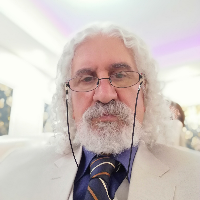Organizational Structure Model of Narcotics Anonymous in Tehran: A Model Derived from Grounded Theory
The present research aimed to identify the organizational structure model in the Narcotics Anonymous in the city of Tehran.
This research was qualitative grounded theory. The statistical population consisted of all experts and veteran members of Narcotics Anonymous, of whom 18 people were selected as the research sample using the purposeful sampling method. In-depth and semi-structured interviews were used to collect data. The data were analyzed in three stages of open, axial, and selective coding using MAX.QDA 2020 software.
The results showed that the central category in the organizational structure of Narcotics Anonymous was the acceptance of the purposefulness of the recovery process. The background conditions included the association’s basic principles, organizational characteristics, and causal conditions, including fundamental beliefs, the association’s dualities, and the faith-orientation dominance. The dialectic categories of individual and society within the association, intra-association opportunities, and intra-organizational threats also formed the intervention conditions of this organizational structure. The strategies of Narcotics Anonymous also included organizational strategies and rehabilitation mechanisms. Finally, the category of treatment methods and rehabilitation mechanisms was identified as a consequence of the organizational structure of Narcotics Anonymous.
The results indicate that while the organizational structure of Narcotics Anonymous has achieved remarkable successes in the way of implementation, in the power structure, which is hierarchical and based on vertical rings of power, and in some fundamental beliefs, it has faced substance-dependent individuals’ transformation of identity, which has led to the criticism of some founders of this association in Iran.
-
Dialectical analysis of Employee-Employer relationship in Iran from the Perspective of Pragmatistic Interpretative Paradigm: Case of Tehran Cement Factory
Seyed Majid Khalili Amin, Hoseinabolhasan Tanhaei *, Amirmasuod Amir Mazaheri
Iranian Journal of Sociology, -
Narration of social harms in 70s Iranian cinema. (case studies; two women and Under the Skin Of the City)
Roya Fathollahzadeh, Mostafa Mehraeen *, , Zahra Hazrati Someeh, Khadijeh Zolghadr
Journal of Sociological Cultural Studies,


